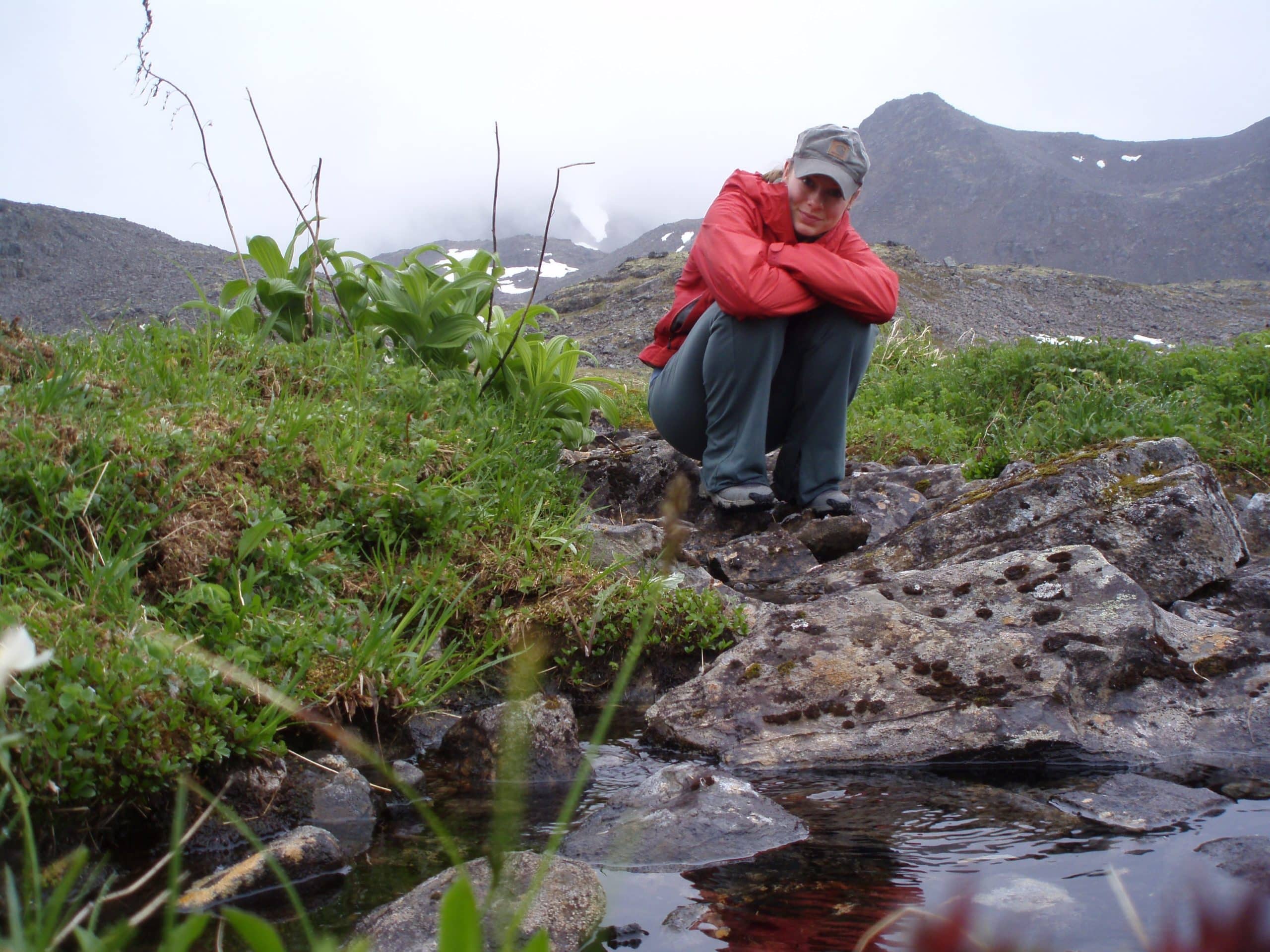
Drinks with lawyers—Joanna makes it to the big leagues
By Dawnell Smith
In grade school, Joanna Cahoon got a robust “atta girl” after arguing in a mock trial. “You’re really good at this,” said her teacher. She remembers being in front of people and liking it, even more when hearing that praise. For the first time, she thought of lawyering as a thing to do. She was 8 years old.
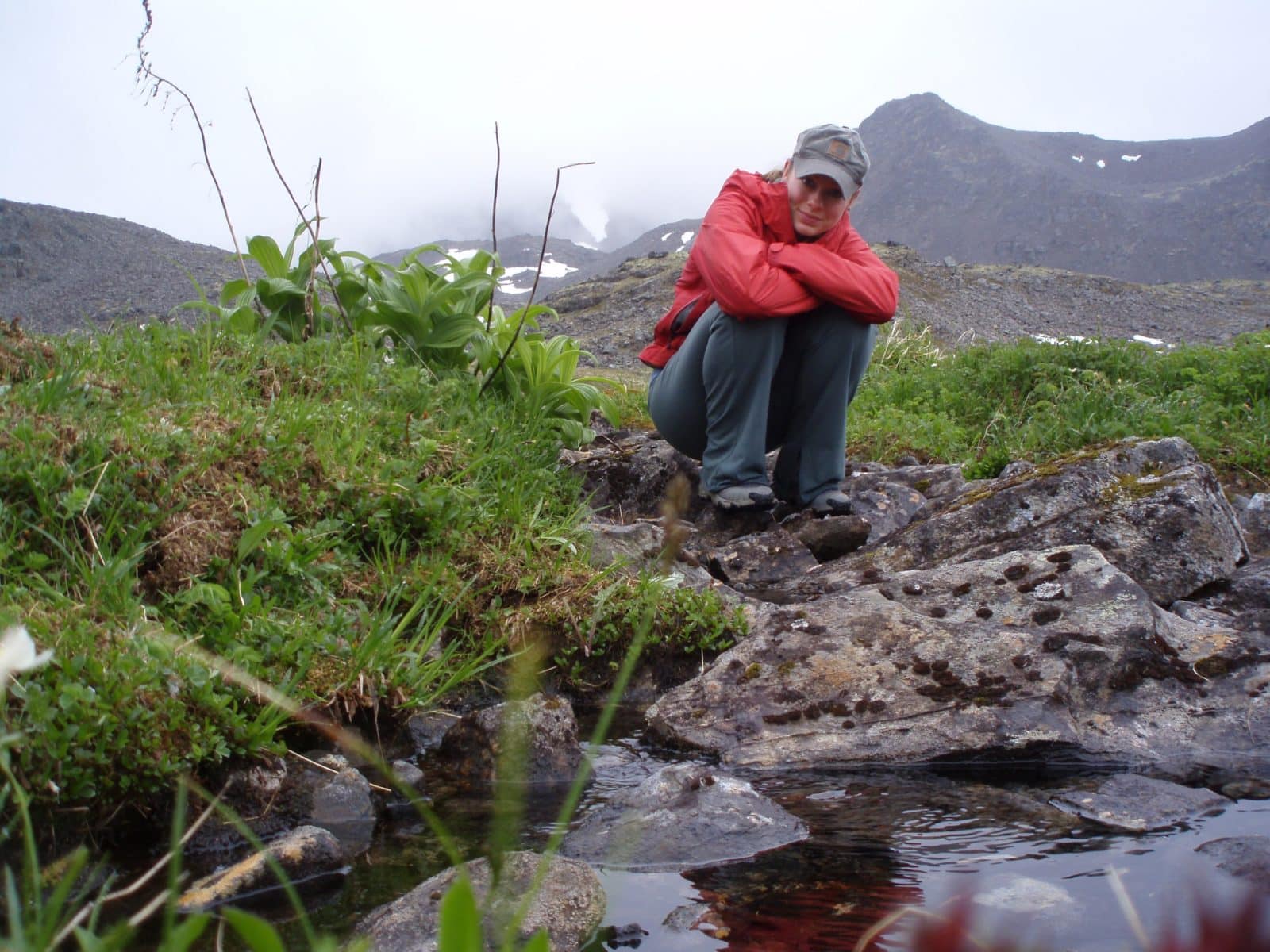
Today, with young kids of her own, she wonders, “What if my earliest performance and all that praise was from my being in a play instead?”
Sure, maybe in an alternative universe she chose a life of theater, but it may also be that her first legal foray played to her strengths—maybe she thrived with the challenge, even more so when challenging assumptions.
Her older sister Carolyn Chase says Joanna has always shown the characteristics of a good lawyer. She gave thoughtful advice to friends as a teenager, and wanted everything out in the open when dealing with conflict, “not a typical characteristic of a teen,” Carolyn noted. “She was also opinionated and loved to discuss and argue her point. I recall that she tended to be stubbornly aligned with her position, something that hasn’t changed all that much. But most of all, Joanna was born with a firm sense of right and wrong. Whenever Joanna identified an injustice, she wasn’t comfortable sitting back and letting it continue.”
The law as shield
Joanna wants to be clear. There was no direct through-line from that mock trial to lawyering. In fact, she angled her interest toward biology and chemistry in secondary school, setting off on a science path. It took her recognition of “less than optimal prowess in higher math” to look at other possible focus areas in college. She chose economics and political science, notable funnels into law school.
As with most things, though, it’s complicated. She didn’t get wrapped up in “what’s next” early in her time at Western Washington University, though the decision tree always loomed large.
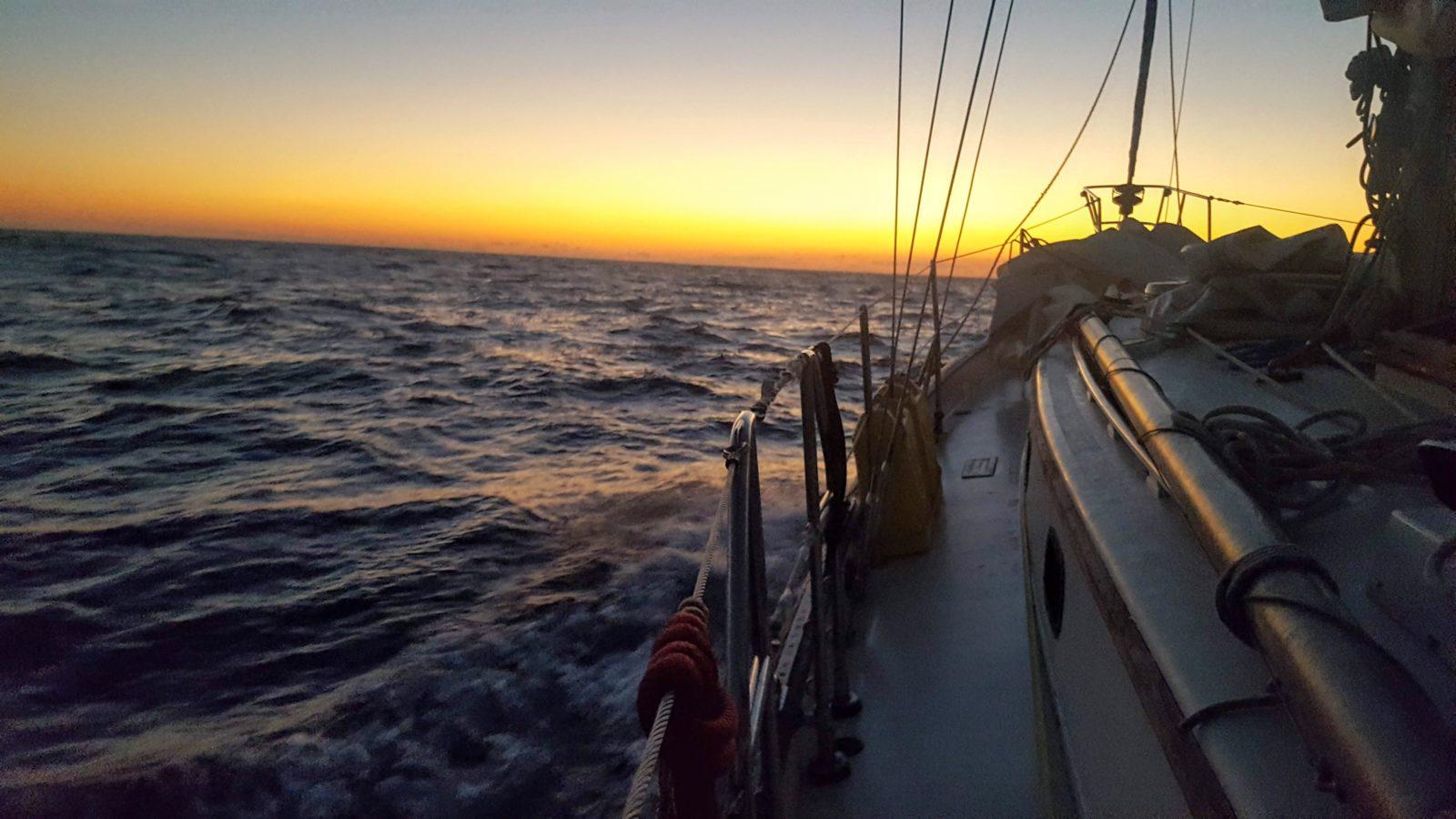
On the one hand, she had fears and concerns about the world that made the law seem like a shield for good—a superpower, if you will, that could help protect the things and beings that matter. As a college student she decided that “being a lawyer is what you do when you give a crap and want to do something about it.”
On the other hand, another set of fears and concerns made lawyering seem daunting. Her go-to way of being is to compromise and find common ground, but lawyers often need to be aggressive and stand their ground. She also worried that law school would put her in a financial hole that would reverberate through her life.
“It wasn’t exactly a calling,” she said. “I was terrified of the debt. I worried that my personality wasn’t a good fit. But I also thought that being a lawyer meant I could do something positive, even if it felt really scary.”
Law from the kids’ table
Joanna has a droll delivery when she talks, with a directness that’s both unflappable and humble. If something needs to be said, she will likely get to it, even if it means pointing out the Gorilla in the room and the pesky pea under its mattress.
It’s not surprising, then, that she states outright, “I don’t know if it’s my psychology or a profession with impossibly high standards, but I always feel like the kid in the room.”
She never feels as capable and confident as a lawyer as she thinks she should be. A fair few people experience imposter’s syndrome, though with Joanna there’s also an element of pushing herself to know, prepare for, and do more. When you care about people, fairness, land and animals, the notion of never doing or knowing enough is the water you swim in; some people fake it, others own it, and Joanna names it.
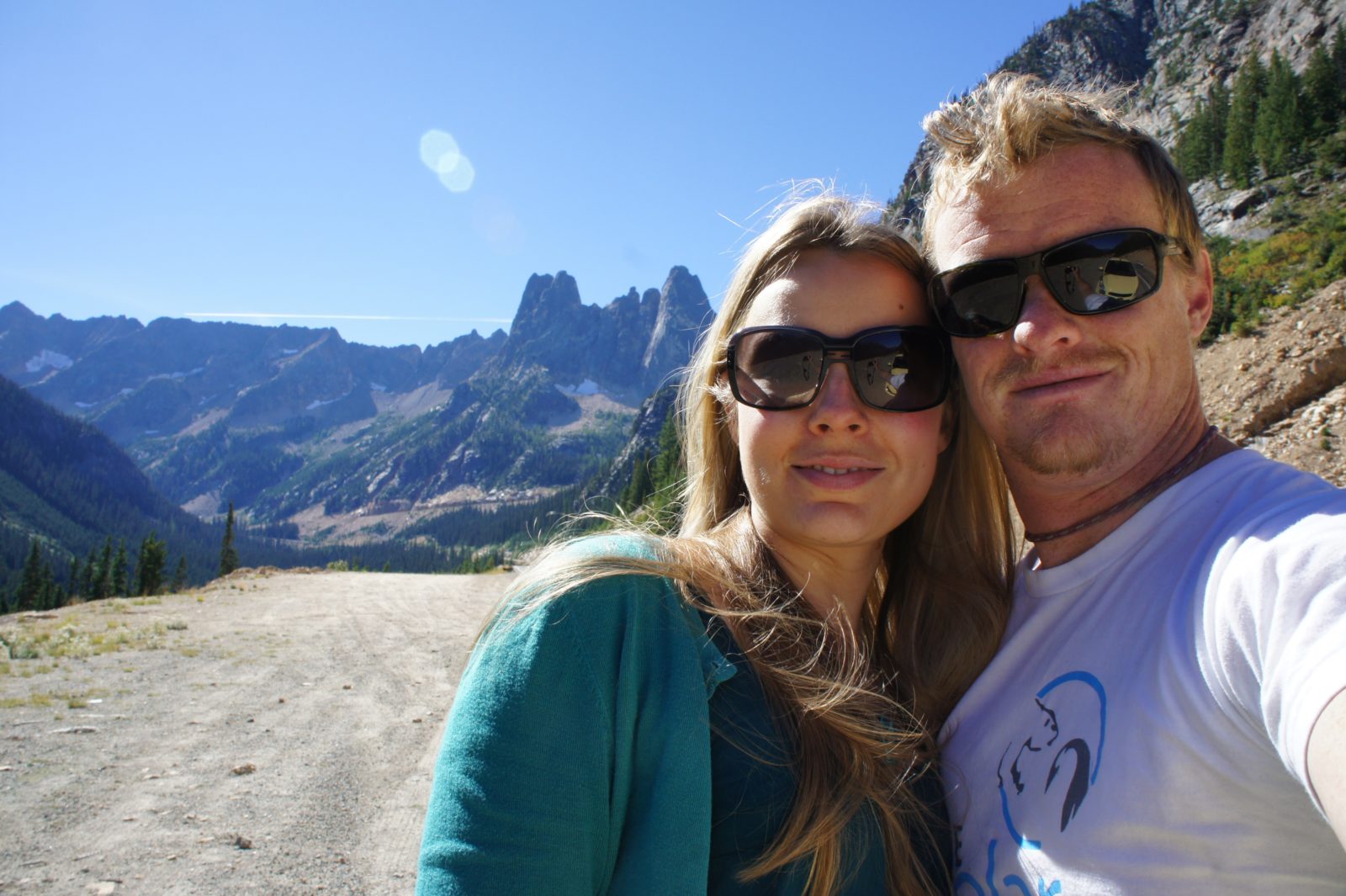
Her husband Sean Cahoon described Joanna as diligent, attentive to details, and wanting to completely understand problems when engaging with them. That means diving into its complexity and knowing, too, that the solutions are complex. That’s a refreshing perspective in a world where too many people endlessly talk about what they know without knowing or caring to know nearly enough.
Joanna cares. She cares deeply. “She approaches life with a deep sense of empathy,” said Sean, and “she also has a desire to leave this world in a better place.”
The law as hammer
When Joanna first told her parents she wanted to go to law school, she got mixed reactions, as she expected. The news impressed her mom and irked her dad. Her mom viewed lawyering as a profession that showed a measure of success; her father saw lawyers as the blood suckers of society. (Of note, her dad has come around since then.)
As with most things that generate strong opinions driven by little direct exposure in a world laden with assumptions, they were both right and they were both wrong. There are attorneys who make a ton of money, and there are public interest attorneys like Joanna. There are ambulance chasers and corrupt attorneys, absolutely, but many lawyers believe in their role in the justice system, want to help people have a say in what happens in their lives and communities, and help fight for a healthier planet.
But lawyering bends away from Joanna’s working-class life. She grew up in a former logging town in Washington where her father worked in construction, and she worked alongside him every summer. She developed a lot of skills and says she “can now pour concrete like nobody’s business,” but money never came easy.
Though anxiety over student loans loomed large for her, Joanna went all-in once she started studying law. In one phone call while she was in law school, her mom and sister told her that they thought the legal path was sharpening the edges of her personality, “like they were saying it’s not my true self,” she said.
Joanna had never fought with her mom and sister before then, but things got heated.
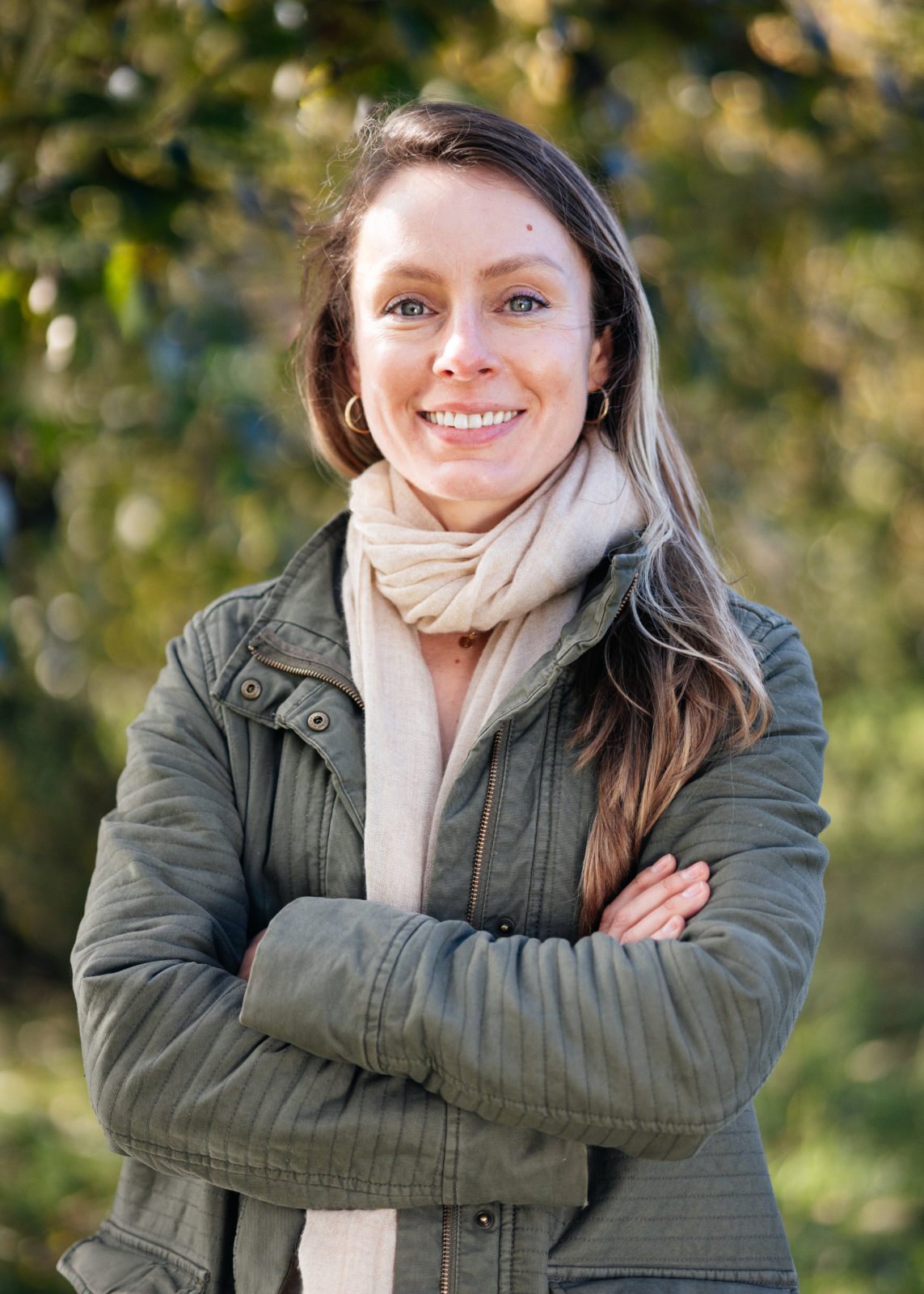
“I thought, well, if I really want to stand up for the things I care about, this is the way I’m going to do it, in a profession that comes down as a hammer,” she said, “and I will be a hammer, too.”
Environmental law is her golden ticket
Joanna studied law at Penn State and then Lewis and Clark—a school known for its environmental law program and where several other Trustees lawyers got their degrees—but she began her legal career in disability law. She wanted to help people and that practice allowed her to have a real and immediate impact on people’s lives. In those kinds of cases, she could come up with creative solutions in settlements that addressed a client’s particular needs. All along, though, her passion stayed with environmental issues.
After years of legal practice, she took a wide step out of one lane and into another. She accepted a two-year legal fellowship with Trustees in 2020, and then an attorney position earlier this year.
This meant going from a practice where compromise could do good things for a specific client to legal work within “an almost zero-sum world where you’re either destroying landscapes and the planet or you’re not,” she said.
Public interest law typically centers on a range of clients and values, where compromise can be difficult or impossible because of the nature of the differing interests, and where legal conflicts endure through a seemingly endless cycle of legal actions where environmental lawyers try to protect specific waterways and beings like polar bears or a range of landscapes and wildlife that mean something essential to many different groups of people.
The work can feel endless, the burden great, but Joanna now feels like she’s working on issues that most matter to her. “This is the golden ticket,” she said. “I feel like I’ve weaseled my way into the room I really wanted to be in. It feels like playing in the big leagues.”
The decision-making game
Her sister Carolyn has noticed changes since Joanna shifted into environmental law. “I’ve seen upticks in Joanna’s optimism since joining Trustees for Alaska,” she said. “As someone who is deeply concerned for earth’s future, it’s been a positive change for her to work directly on environmental issues.”

One of Joanna’s favorite roles is helping people navigate how big decisions get made, decisions that can impact people for generations. What’s taken under consideration in these decision-making processes can be siloed, she said, and the public processes can feel impenetrable. There’s a game to knowing how to lodge concerns and what considerations matter.
That’s where Joanna can play a key support role by making sure to convey the full scope of considerations an agency should look at when analyzing a project proposal, and helping others understand how they can do the same.
This plays into Joanna’s strength at looking deeply at a problem or concern, and her desire to help people have a say in what happens to their lives and communities. Lawyering has reinforced Joanna’s already strong sense of duty, said Sean.
“She has such a desire to contribute to improving the health of our environment,” he said, “and, while the setbacks are hard, working toward that greater good has sharpened her sense of purpose.”
How restraint makes joy a daily practice
Joanna and Sean moved back to Alaska in 2013 after leaving for their graduate degrees. Sean got a job with the U.S. Forest Service as a research ecologist. They have two young children now, and for Joanna, that means making space for joy. It isn’t always easy.
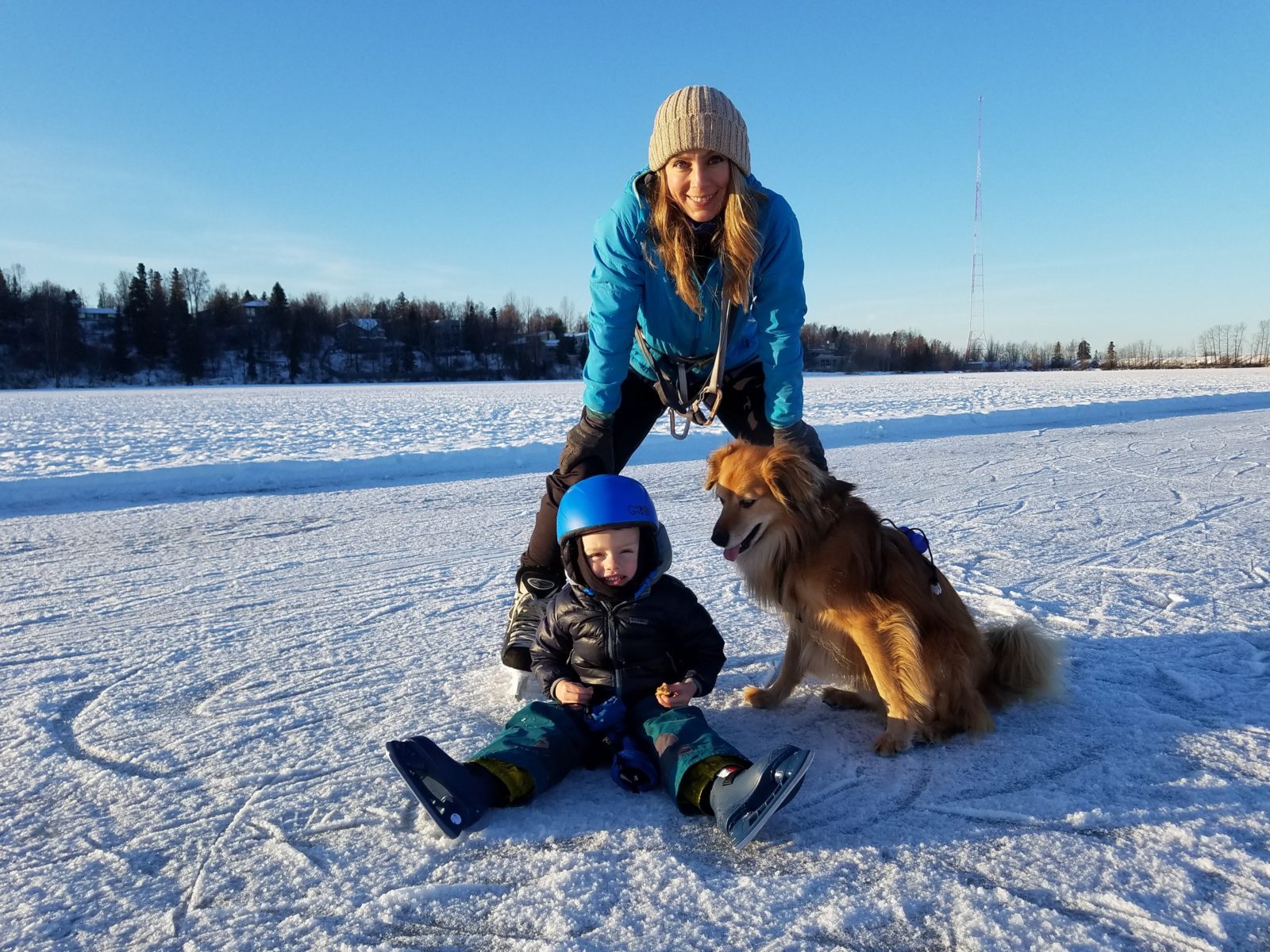
When Trustees won its first Willow lawsuit, Joanna felt over-the-top elated. “I’m embarrassed to tell you how excited I was when we won Willow,” she said. “I didn’t have a clue. With this kind of legal work, you only celebrate a minute because it’s coming back around.”
The wins can be small or brief, the losses and challenges relentless, so Joanna has learned to set boundaries on where she puts her attention. She and Sean used to spend a lot of time talking about what’s in the news, but she more recently put guardrails on that. “I didn’t want to constantly take all that information in and spar about it,” she said.
These days, she centers her passion and attention on the environment and issues around violence in communities. She cares about so many other things, “but I have to conserve my emotional bandwidth and let other people make those other things their priorities,” she said.
Because as a mother and lawyer, she has cases to attend to, people to support, a family to go home to, and a need to try to make rest and joy a daily practice.
This is the fourth in a series of profiles based on interviews with Trustees’ attorneys over drinks, this time over sour beer at Cynosure Brewing Company in Anchorage.
More in the drinks with lawyers series:


